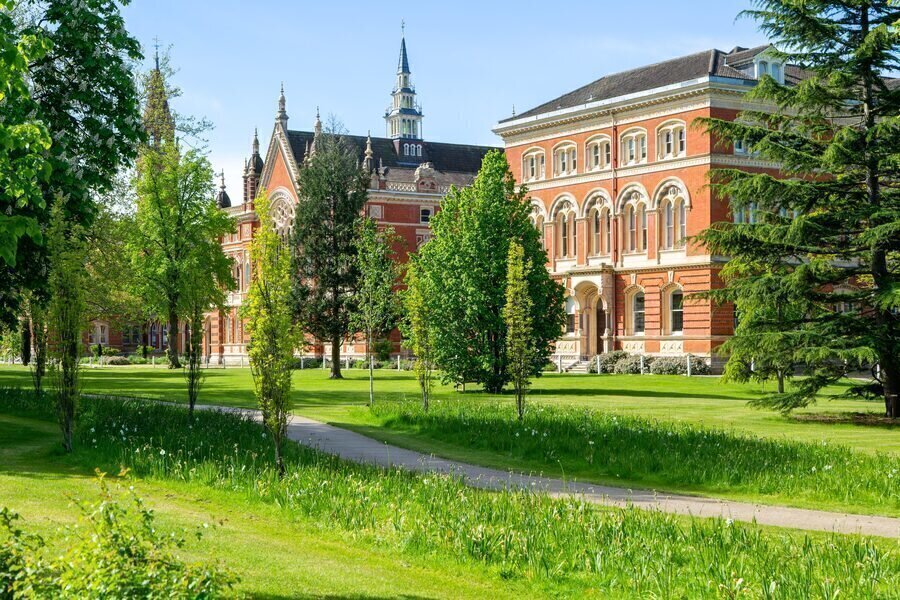Why families choose UK private schools: Academic results, class sizes & co-curricular activities
Whether you are preparing to start your child at pre-prep or making the leap into senior or sixth form, choosing a school is a life-changing decision. For many families, private schools offer a valuable education by combining academic excellence with personal development, co-curricular activities and a supportive school community. This guide explores the core benefits of private education to help give you clarity and confidence in making the right school choices for your family.
Smaller school communities
One of the most defining aspects of private schools is their smaller size. With fewer pupils overall, children attending private schools are more closely observed and often better supported.
- Half of ISC member schools have fewer than 273 pupils, and a quarter have fewer than 142 (Source: ISC Census and Annual Report 2025).
- Only 7% of ISC member schools have more than 1,000 pupils.
Smaller school communities help to foster close-knit environments, where friendships are often formed between children across different year groups.
Smaller class sizes and lower pupil-to-teacher ratios
- The average pupil-to-teacher ratio at ISC member schools is 8.6:1, compared with 18.1:1 in state-funded schools in 2024 (Source: ISC Census and Annual Report 2025).
- While exact class sizes inevitably vary, private schools strive to maintain small class sizes to help provide more individualised attention and tailored instruction. The typical class size at a private school is between 10 and 15 pupils, whereas in state-funded schools, the average class size at primary school is 26.4 pupils, and in secondary school it is 22.5 pupils (Source: Department for Education).
The result of smaller class sizes is that private school pupils move at a pace that better suits them, while also being able to seek support more easily when needed.
Academic excellence and university success
Private schools consistently deliver strong academic outcomes, with many pupils being awarded places at top universities in the UK and overseas.
The ISC Census and Annual Report 2025 highlights this strong academic performance:
- 90% of Year 13 pupils leaving ISC member schools continued to higher education in the UK or overseas.
- 52% of these leavers now attend one of the Top 25 universities in the UK (as ranked by the Sunday Times Good University Guide).
- A further 26% attend universities ranked 26–50.
- 4% of ISC member school leavers attend Oxford or Cambridge.
- 7% go to overseas universities, with the USA being the most popular destination (48% of this group).
- 2.4% of leavers enter employment straight after school.
- 1.7% go into further education or training, including apprenticeships.
- Over half of A-level entries at independent schools were awarded A or A* grades.
- According to DfE data, 78% of the top 50 schools ranked by A-level points score are independent schools.
A broader, more flexible curriculum
Unlike state schools, private schools are not bound by the national curriculum, which gives them scope to design a more enriched and holistic educational experience.
Popular subjects that private school pupils may study include:
- Latin, Greek, or Mandarin
- Philosophy, Politics, or History of Art
- LAMDA, Debating, or Coding Clubs
- International Baccalaureate
Outstanding facilities and technology
Private schools often invest heavily in their facilities, with many providing excellent environments to aid both academic study and co-curricular interests.
Typical co-curricular facilities can include:
- Fully equipped science laboratories and digital media study suites
- Theatres, concert halls, and dance studios
- AstroTurf sports pitches, swimming pools, and climbing walls
These resources help to support a wide range of activities, including:
- Music, orchestra, and individual instrument lessons
- Art, textiles, and photography
- Debating societies and public speaking clubs
- Chess, robotics, coding, and environmental societies
Sport and team spirit
Sport plays a central role in private school life, and this is not just for physical development benefits, but also social growth, teamwork and confidence-building.
Pupils at private schools are regularly given the opportunity to:
- Train with dedicated sports coaches
- Compete in fixtures against other schools
- Participate in teams playing cricket, rugby, hockey, netball, and athletics
- Access facilities and resources that nurture both elite and recreational athletes
Pastoral care and wellbeing
One of the hallmarks of private schools is their strong emphasis on wellbeing. Most schools have established pastoral systems, which include:
House structures or tutor groups
On-site nurses, counsellors, or wellbeing coordinators
Programmes that support emotional literacy, mindfulness, and resilience
This pastoral resource creates a safe and nurturing environment where pupils feel known, heard, and supported - both academically and emotionally.
Lifelong friendships and alumni networks
Private schools often have formal alumni programmes, which create enduring links between former pupils, staff, and school communities.
These alumni networks provide:
- Mentoring and career support
- Reunions and events
- Access to a broader global network of professionals, creatives, and business contacts
FAQs: Private School Benefits
Do all private schools have small class sizes?
While sizes vary, most private schools prioritise low pupil-teacher ratios and individualised learning.
Is the curriculum significantly different from that of state schools?
Yes, many private schools go beyond the national curriculum, offering a broader range of subjects and more innovative approaches to education.
Are private schools only for academically gifted children?
No, not at all. Schools vary, with many offering outstanding support for pupils of all abilities and talents.
What about pastoral care?
Private schools place great emphasis on wellbeing, with structured pastoral systems and a proactive approach to emotional support.
How do pupils transition into senior schools and universities?
Most schools have dedicated senior school and/or university and careers advisors. Many Headteachers play an active role in the onward journeys of their pupils, particularly at prep schools.
